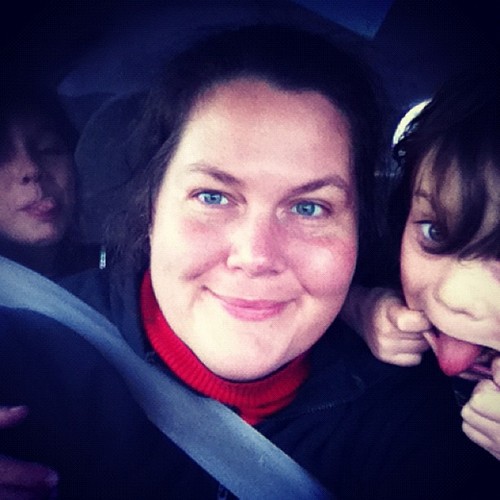Recommended dietary changes include such basics as eating regular meals, adding whole soy foods and other legumes to the daily menu, limiting alcohol, incorporating flax seed into meals, and sneaking in a few extra servings of calcium-rich foods.
It's a short, light blog post and serves as an introduction for anyone brand new to the topic of diet, menopause, and hormonal health. Why Goodyear's brief article struck me as newsworthy is the list of reader comments that followed her post. Here's a sample:
Wouldn't you recommend some sort of thyroid supporting foods ie kelp, coconut etc to deal with possible thyroid suppressing properties of isoflavens and other such compounds in soy?
Interesting that isoflavens are promoted as beneficial hormonally for menopausal women - but no one cares to think whether the same effect is undesirable in other people like men, younger women and children. Not that we have a choice anymore - as most breads and processed meats now contain soy.
PS - All the calcium in low-fat milk is quite useless without the vitamins in the fat. Maybe there is a good argument for menopausal women to take high Vitamin D Cod Liver Oil?-- Gordon
Well said Gordon!
Leave the soy where it belongs - in the fields as a soil conditioner!
If you want to stay healthy during menopause (or at any time), keep off the sugar, wheat and caffeine and stick to quality protein and fruit and veg. Easy!
No profit in that prescription though, is there?-- Diane
Concur with Gordon on the fat angle - always eat the Full cream milk to get the Vitamins ,--------------Found this article rather too glib and like the voluminous artic;es in Glossy womens Magazines that repeat themselves ad Naseum .......What I want to see is more relevant research on - for example Bloating - This appears to me to be so Hormonely regulated - especially notable at menopause You may not be actually putting on weight - you may be bloating - what are the Food triggers , hormonal triggers etc and what can we do about water balance in our bodies at this time ? I am getting pretty sick of the condition and pretty sick of no-one havong any turly concreete idea of what is going on - Please stop pushing soft sell science and get into the REAL WORLD !
-- Robyn
These comments echo the confusion I experienced for a long time about whether or not I should eat soy and my frustration at only being able to find "glossy women's magazine" - type reading material on the subject of diet and hormonal health. As these three comments highlight, women come at this topic from so many different backgrounds, beliefs, and interest levels. But comments such as these powerfully suggest that we women crave a deeper understanding of how our bodies change as we enter menopause. To protect our health and well-being, can it really be as easy as changing what we eat? And if so, how do we know we are getting the advice that's right for our particular needs?
Once a blog post like Goodyear's piques your interest, a few helpful articles offering a deeper understanding of diet, hormonal balance, and menopause can be found on the Women to Women site. For starters, here's an article that looks in-depth at perimenopausal and menopausal weight gain. Another useful piece specifically examines how soy supports the body through menopause. The content is thorough, balanced, and when I see the blog headline, "Can you eat your way to a healthier menopause?", my answer is an informed, confident yes!

No comments:
Post a Comment